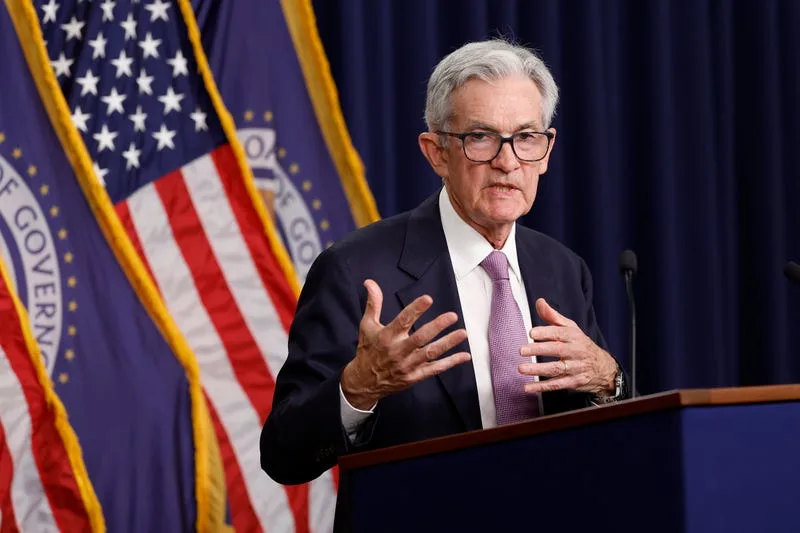
The Dow Jones Industrial Average (DJIA) dropped more than 350 points Monday afternoon after Federal Reserve Chair Jerome Powell said that more interest rate cuts were coming, but that the central bank is not in a rush to “cut rates quickly.”
Speaking at the National Association for Business Economics’ annual conference in Nashville, Powell expressed confidence in the country’s economic outlook.
“Labor market conditions are solid, having cooled from their previously overheated state,” he said. “Inflation has eased, and my Federal Open Market Committee colleagues and I have greater confidence that it is on a sustainable path to 2%.”
The Dow fell 0.8%, or 351 points, to 41,960. The tech-heavy Nasdaq (NDAQ) and S&P 500 dropped 0.6% and 0.5%, respectively.
The remarks came less than two weeks after the Federal Open Market Committee approved a half-percentage-point (50 basis points) cut, its first cut following years of hikes to combat a post-pandemic inflation spike.
Powell expressed confidence in the labor market, noting that layoffs remain low. He highlighted that the labor force participation rate for individuals aged 25 to 54 is near a historic high, while prime-age women’s participation continues to reach new all-time records. Key employment data are set to be released this week, providing further insights into the economy’s health.
Inflation is cooling down
Powell also expressed optimism about controlling inflation, citing recent data that point to steady progress toward the Fed’s annual 2% inflation target.
“Core goods prices have fallen 0.5 percent over the past year, close to their pre-pandemic pace, as supply bottlenecks have eased,” he said.
With the economy in solid shape, Powell hinted at the possibility of further rate cuts, but emphasized that the recent half-percentage-point reduction should not be seen as a signal that future cuts will be as aggressive.
“Looking forward, if the economy evolves broadly as expected, policy will move over time toward a more neutral stance. But we are not on any preset course,” Powell said. “The risks are two-sided, and we will continue to make our decisions meeting by meeting.”





























